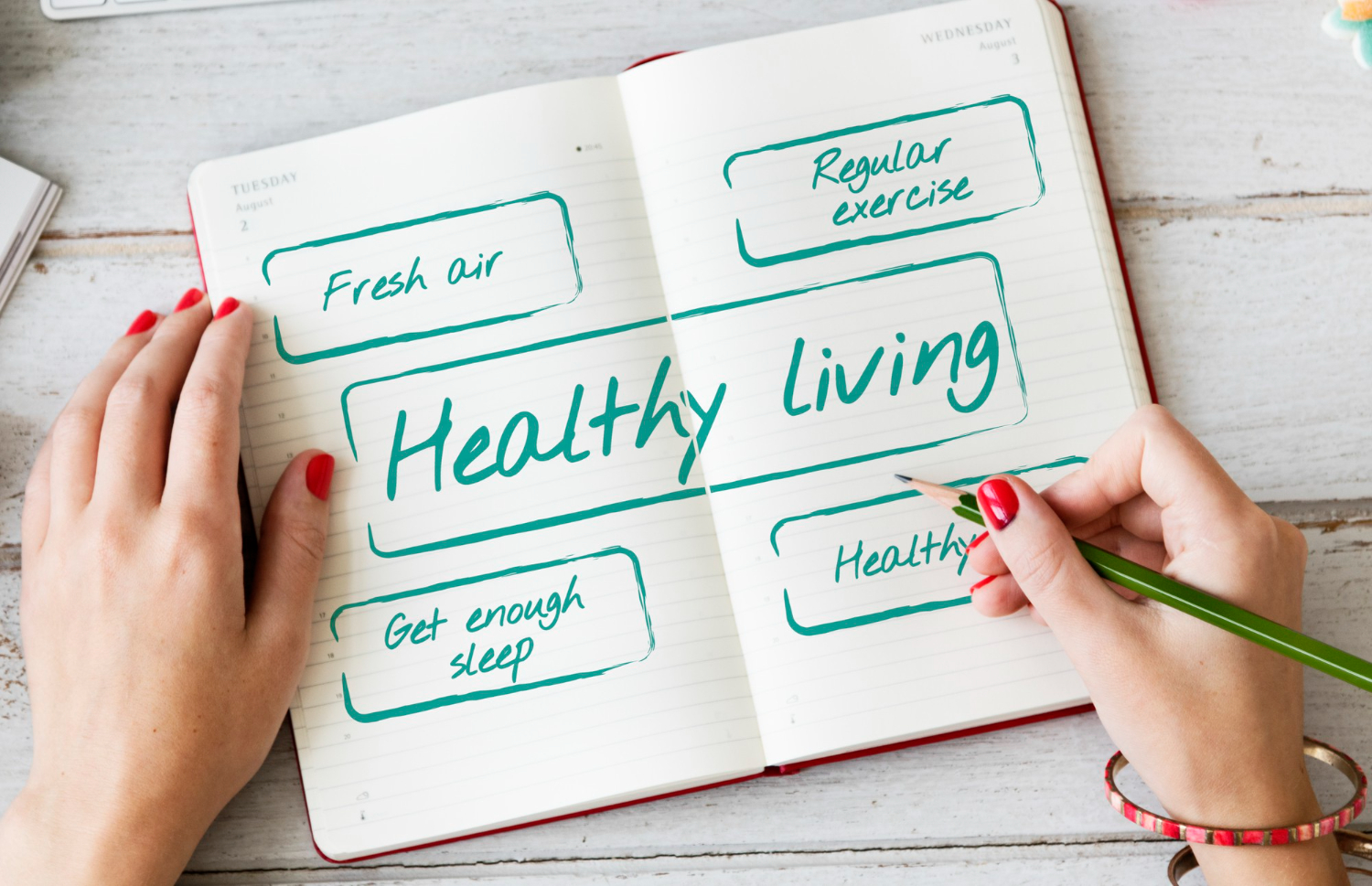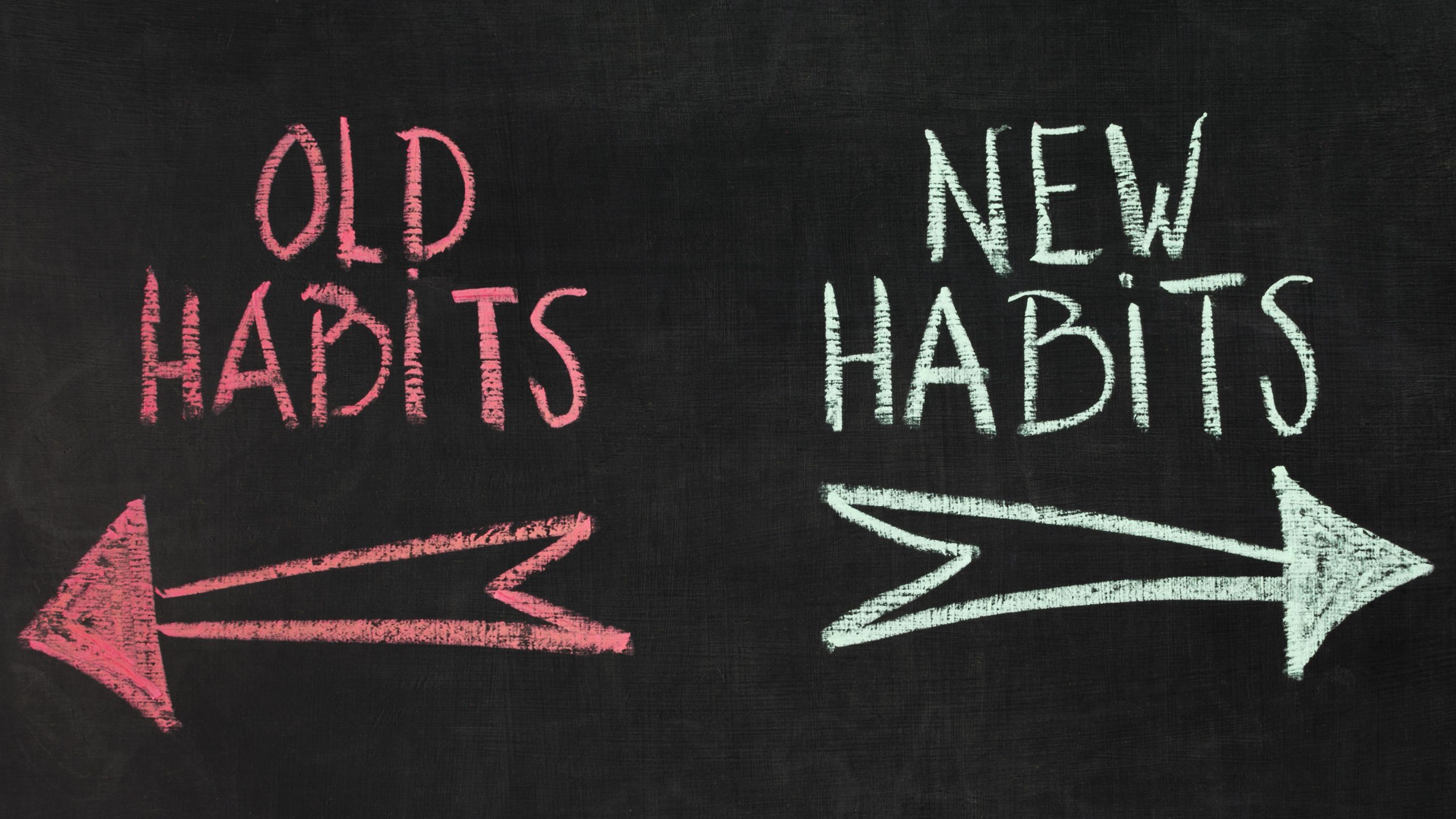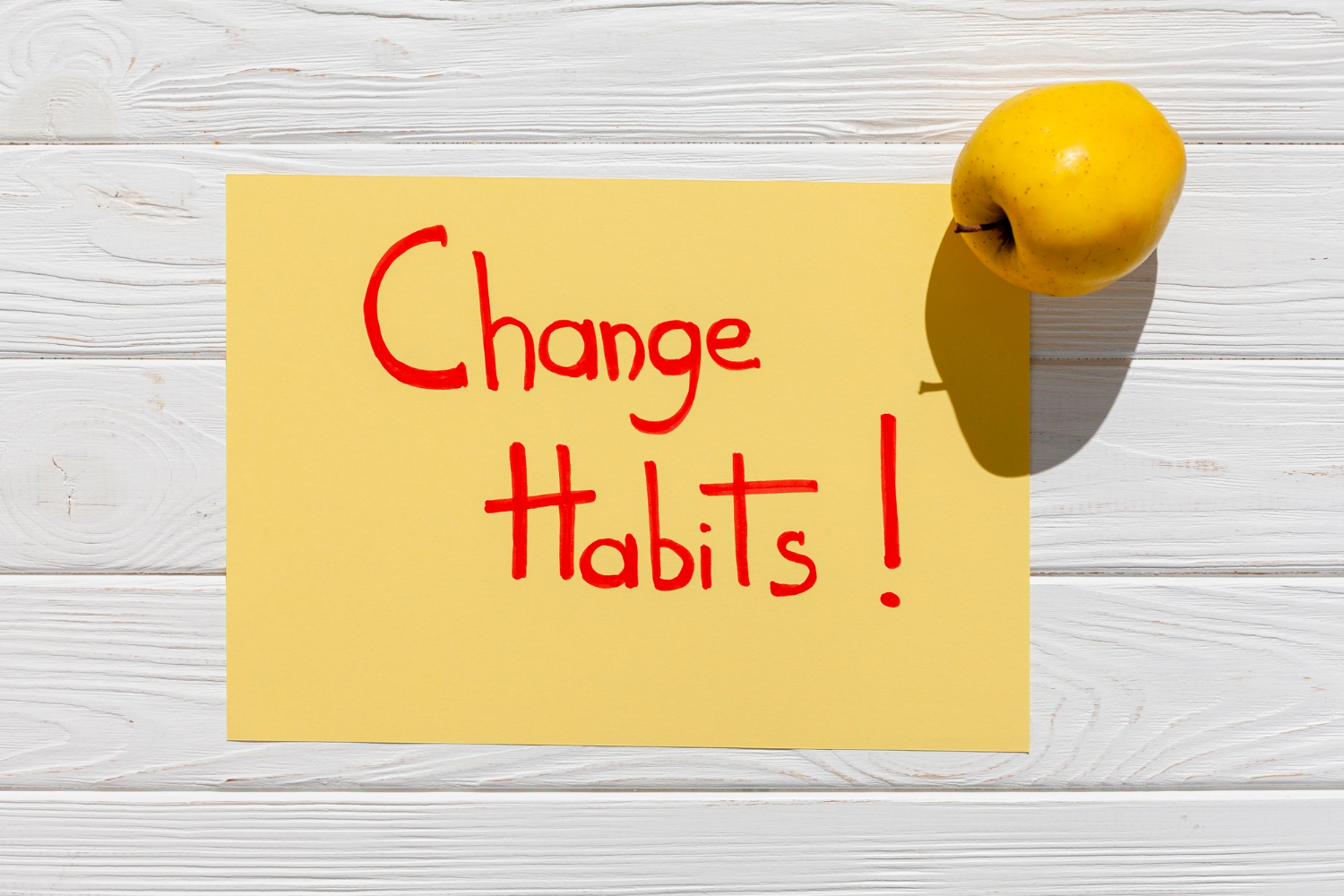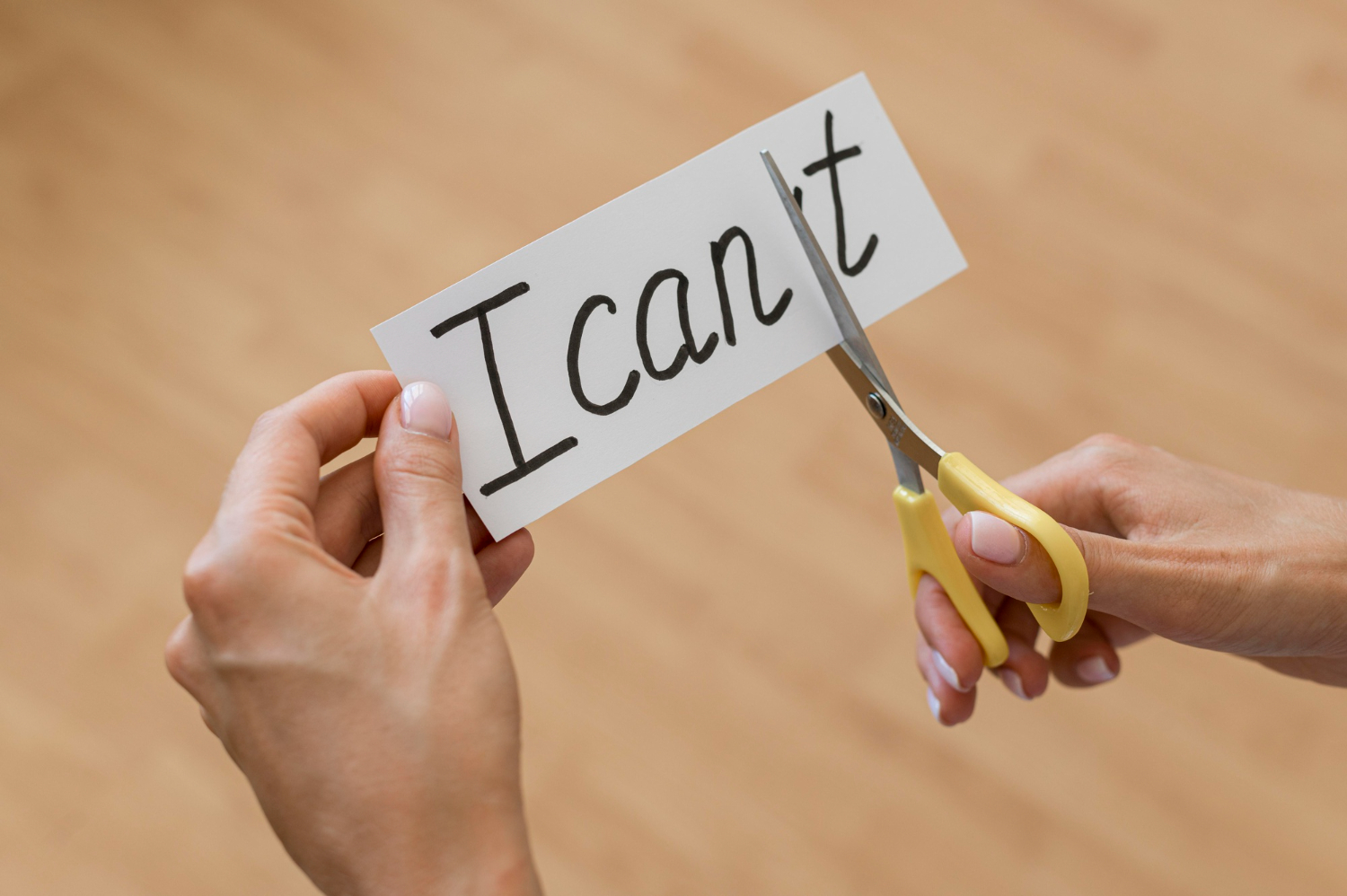How to Build Healthy Habits: Meaning, Examples, and Tips

According to behavioural expert James Clear, nearly 40% of our daily actions are driven by habits, not conscious decisions. Whether it’s reaching for your phone first thing in the morning or brushing your teeth at night, habits quietly shape our lives for better or worse.
In this guide, we’ll unpack the true meaning of a habit, explore the differences between good and bad habits, and walk you through science-backed strategies to build healthy ones that last. Plus, you’ll learn how to break unhelpful patterns and use tools like a habit tracker to stay on course.
Habit Meaning: What Is a Habit
A habit is a behaviour we perform automatically, often without conscious thought because we’ve repeated it enough times for it to become ingrained. Habits are formed through a process where behaviours become automatic responses to specific cues. They are the brain’s way of saving effort, allowing us to navigate daily life efficiently by relying on patterns we’ve already established.
In psychological terms, a habit is more than just a repeated action. It’s a learned response to a particular context or trigger, something you do regularly in a particular situation because, over time, it has become second nature.
Examples of Good Habits
Good habits support your wellbeing and long-term goals. They often require effort and consistency at the start but pay dividends over time. Some common examples include:
- Drinking water first thing in the morning
- Exercising regularly, even if it’s just a short walk
- Keeping a consistent sleep schedule
- Practising mindfulness or gratitude daily
- Using a habit tracker to monitor personal progress
- Brushing and flossing your teeth every night
- Preparing healthy meals instead of relying on takeaways
These behaviours may seem small, but they compound over time to create meaningful changes in your physical and mental health.
Examples of Bad Habits
Bad habits, by contrast, are actions that may offer short-term satisfaction but often come with long-term consequences. They tend to form easily, especially when paired with instant rewards or as coping mechanisms. Examples include:
- Reaching for your phone compulsively or scrolling late into the night
- Skipping breakfast or relying on sugary snacks for energy
- Procrastinating on important tasks
- Smoking or excessive alcohol use
- Negative self-talk or constant self-criticism
- Sedentary lifestyle choices, like prolonged sitting without breaks
The important thing to remember is that bad habits don’t make you a bad person, they’re just behaviours your brain has learned to lean on. And with the right approach, they can be unlearned and replaced with healthier alternatives.
Key Differences of Habits and Routines
While the terms habit and routine are often used interchangeably, they aren’t quite the same.
- A habit happens automatically. It’s the unconscious brushing of your teeth before bed or reaching for your phone the moment you wake up.
- A routine, on the other hand, requires intentional effort and planning. It might include preparing a weekly meal plan, going to the gym at a scheduled time, or reading before sleep. Routines can evolve into habits over time, but they begin with conscious decision-making.
Understanding this distinction is helpful, particularly when you’re trying to build healthy habits. Routines provide the structure that, through repetition and reinforcement, can eventually become effortless habits.
Importance of Healthy Habits
Healthy habits are the building blocks of a balanced, fulfilling life. When practised consistently, they support both your mental and physical wellbeing, often becoming the quiet drivers of long-term health, happiness, and productivity.
Here’s why developing healthy habits makes such a difference:
Support mental and physical wellbeing
- Improve mood and reduce stress levels
- Support better sleep and emotional regulation
- Boost energy, immune function, and heart health
- Encourage greater focus and mental clarity
Prioritise long-term rewards over short-term comfort
- Bad habits often offer immediate gratification (e.g., junk food, endless scrolling)
- Healthy habits might take longer to show results, but those results are deeper and longer-lasting
- With consistency, you begin to see real, meaningful change that aligns with your personal goals
Reduce mental effort and daily decision fatigue
- Habits operate automatically once they’re ingrained
- Frees up your mind for more important tasks or creative thinking
- Life becomes easier when you’re not constantly debating whether to do something beneficial, you just do it
By building healthy habits, you’re not just making daily life smoother, you’re investing in a lifestyle that helps you thrive with less friction and more intention.
How Habits Are Formed
Habits don’t form by accident, they follow a predictable psychological pattern known as the habit loop, first described by behavioural scientists. This loop consists of four key stages:
- Cue: A trigger that prompts the behaviour (e.g., feeling stressed)
- Craving: A desire or urge to act (e.g., needing comfort)
- Response: The actual behaviour (e.g., eating chocolate)
- Reward: The positive feeling or relief that follows (e.g., feeling soothed)
Over time, this loop becomes reinforced. The brain begins to associate the cue directly with the reward, making the response more automatic. That’s why you might find yourself reaching for your phone without even realising you’re doing it, it’s a learned association your brain has practised many times.
There’s a common belief that it takes 21 days to build a habit, but the truth is more nuanced. This idea originated from a 1960s observation, not scientific evidence. In reality, research shows that habit formation varies widely depending on the complexity of the behaviour and the individual. On average, it takes around 66 days, but it could be as short as 18 days or as long as 254 days. What matters most is not how fast you form a habit, but that you stay consistent, even when progress feels slow.
6 Proven Ways to Build Healthy Habits
Building a new habit isn’t about willpower alone, it’s about strategy, patience, and understanding how your brain works. Whether you’re trying to move more, eat better, or reduce screen time, the key is to build in ways that feel realistic and sustainable. Below are six proven methods that draw from behavioural science and real-life application.
1. Start Small and Simple
One of the biggest mistakes people make is setting goals that are too big too soon. Ambition is great, but consistency is more important at the start.
Instead of saying “I’ll run 5km every morning”, start with “I’ll go for a 5-minute walk after breakfast”. By starting small, you remove the pressure and make it easier to show up every day.
Small habits are more likely to stick because they’re manageable and non-threatening to your existing routine. Over time, you can build on them naturally.
2. Use Specific and Actionable Goals
Vague intentions often lead to vague outcomes. Saying “I want to eat healthier” is admirable, but it doesn’t give your brain clear instructions.
Instead, turn your goal into a specific, measurable action:
- “I’ll eat a piece of fruit with breakfast every day.”
- “I’ll stretch for five minutes after brushing my teeth at night.”
Specificity helps you track progress and builds confidence through completion. You’re far more likely to follow through when the steps are clear.
3. Leverage Cues and Reminders
Habits form through repetition, and repetition is often triggered by a cue, a signal that prompts the behaviour.
You can design your environment to support habit formation by setting up cues:
- Leave your workout clothes near your bed as a morning exercise reminder
- Use a post-it note on your laptop to remind you to take screen breaks
- Set phone alarms for hydration or movement breaks during work
Cues help you remember your habit, while reminders reduce the mental load of decision-making.
4. Track Progress Consistently
Progress is motivating, and seeing it visually makes it feel real. This is where a habit tracker can be incredibly helpful.
Whether it’s a paper checklist, a mobile app, or a calendar on your fridge, marking off each completed habit gives you a sense of accomplishment.
- Habit tracking provides accountability
- It highlights your consistency over time
- It can help you identify what’s working and what’s not
Even a simple tick box offers a small reward for your brain, a satisfying signal that you’re making progress.
5. Make it Enjoyable
We’re more likely to stick with habits we enjoy. If something feels like a punishment, your brain will resist it, even if it’s good for you. This doesn’t mean abandoning your goals. It means pairing the behaviour with something pleasant:
- Listen to your favourite podcast while doing chores
- Watch your favourite show while walking on the treadmill
- Enjoy a relaxing tea after completing your journaling routine
This technique is known as temptation bundling, making the process feel rewarding in itself.
6. Be Flexible and Patient
Despite best efforts, life will get in the way. And that’s okay.
Research shows that missing a day or two doesn’t break a habit, what matters is getting back on track without guilt. Have a “recovery plan” for days when your schedule is disrupted.
Also, be patient. Habits don’t form overnight. It’s not about how fast, but how consistent:
- Some habits may take just a few weeks to stick
- Others (like exercising or meditating daily) can take months to become automatic
Kindness, not pressure, is what helps habits grow.
How to Break Bad Habits by Replacing with Good Ones
Bad habits often develop because they serve a purpose, comfort, distraction, or ease, even if they no longer serve your wellbeing. To truly let go of them, it’s not enough to just stop. You need to replace them with better alternatives.
Here’s how you can approach it:
1. Identify the Cue
Notice what triggers the bad habit. Is it stress? Boredom? A particular time of day?
2. Replace the Response
Instead of reaching for your phone out of boredom, replace that urge with a short walk, a breathing exercise, or even reading a few pages of a book.
3. Make the New Habit Satisfying
Pair the new behaviour with a small reward, like a relaxing cup of tea or a five-minute music break. This reinforces the new pattern.
4. Use Habit Stacking
Attach the new behaviour to something you already do. For example:
- After brushing your teeth → do 2 minutes of stretching
- After checking your email → close your eyes and take 3 deep breaths
Breaking a bad habit is not about perfection. It’s about awareness, strategy, and kindly steering yourself in a better direction.
Final Thoughts on Building Lasting Habits
Lasting habits aren’t built overnight, they’re shaped through small, consistent steps taken with intention and patience. It’s not about perfection, but about showing up regularly and being flexible when life gets in the way. Even on difficult days, returning to your habits, however imperfectly, reinforces your commitment to your wellbeing.
If you’re feeling overwhelmed, just start with one small habit today. Whether it’s a 5-minute walk, a glass of water in the morning, or writing down one thing you’re grateful for, every small act matters.
Consider working with a life coach and start using a habit tracker to keep yourself motivated and mindful of your progress. Sometimes, all it takes is seeing that one tick mark to realise, you’re already on your way.
Frequently Asked Questions
What’s the best way to start building healthy habits in a busy lifestyle?
Start small. Choose one habit that’s easy to manage in your day, like drinking a glass of water after waking up or walking for 10 minutes in the evening. UAE residents often have long commutes and work hours, so finding a habit that fits naturally into your routine without requiring major changes helps it stick.
How do I stay consistent with healthy habits during summer in the UAE?
When it’s too hot to be outdoors, adjust your habits to suit indoor environments. You could stretch at home, use indoor walking tracks in malls, or switch to home workouts. Staying hydrated and sleeping well also become even more important in high heat. A flexible mindset makes it easier to stay on track, even when routines shift.
I keep slipping back into old habits. What should I do differently?
Slipping up is normal. Instead of trying to be perfect, focus on being consistent. When you miss a day, just restart the next. You can also replace an old habit with a new one, for example, instead of scrolling on your phone at night, try reading or listening to calming music. Tools like habit trackers or working with a life coach can help you stay motivated.
What are some examples of good habits I can start?
Here are a few that work well in the local context:
- Drinking more water throughout the day
- Taking walking breaks during long desk hours
- Preparing balanced meals at home at least twice a week
- Practising mindfulness or prayer at a set time each day
- Limiting late-night screen time to improve sleep
These habits are small but can make a noticeable difference to your overall health.
Are habit tracker apps useful, or are they just another thing to manage?
Habit trackers can be very effective if used simply. You don’t need anything complicated, a basic app or even a paper calendar works. The idea is to make your progress visible. Seeing how often you stick with a habit helps build momentum, and it can also show you where you need to adjust.
- September 2025
- August 2025
- July 2025
- June 2025
- May 2025
- April 2025
- March 2025
- February 2025
- January 2025
- December 2024
- November 2024
- October 2024
- September 2024
- August 2024
- July 2024
- June 2024
- May 2024
- December 2023
- November 2023
- August 2023
- July 2023
- June 2023
- May 2023
- April 2023
- March 2023
- February 2023
- January 2023
- December 2022
- November 2022
- October 2022
- September 2022
- August 2022
- July 2022
- June 2022
- May 2022
- April 2022
- March 2022
- February 2022
- January 2022
- December 2021
- November 2021
- October 2021
- September 2021
- August 2021
- July 2021
- June 2021
- May 2021
- April 2021
- March 2020
- February 2020
- January 2020
- December 2019
- November 2019
- October 2019
- September 2019
- August 2019
- July 2019
- June 2019
- May 2019
- April 2019
- March 2019
- February 2019
- January 2019
- December 2018
- November 2018
- October 2018
- September 2018
- August 2018
- July 2015
- May 2014







